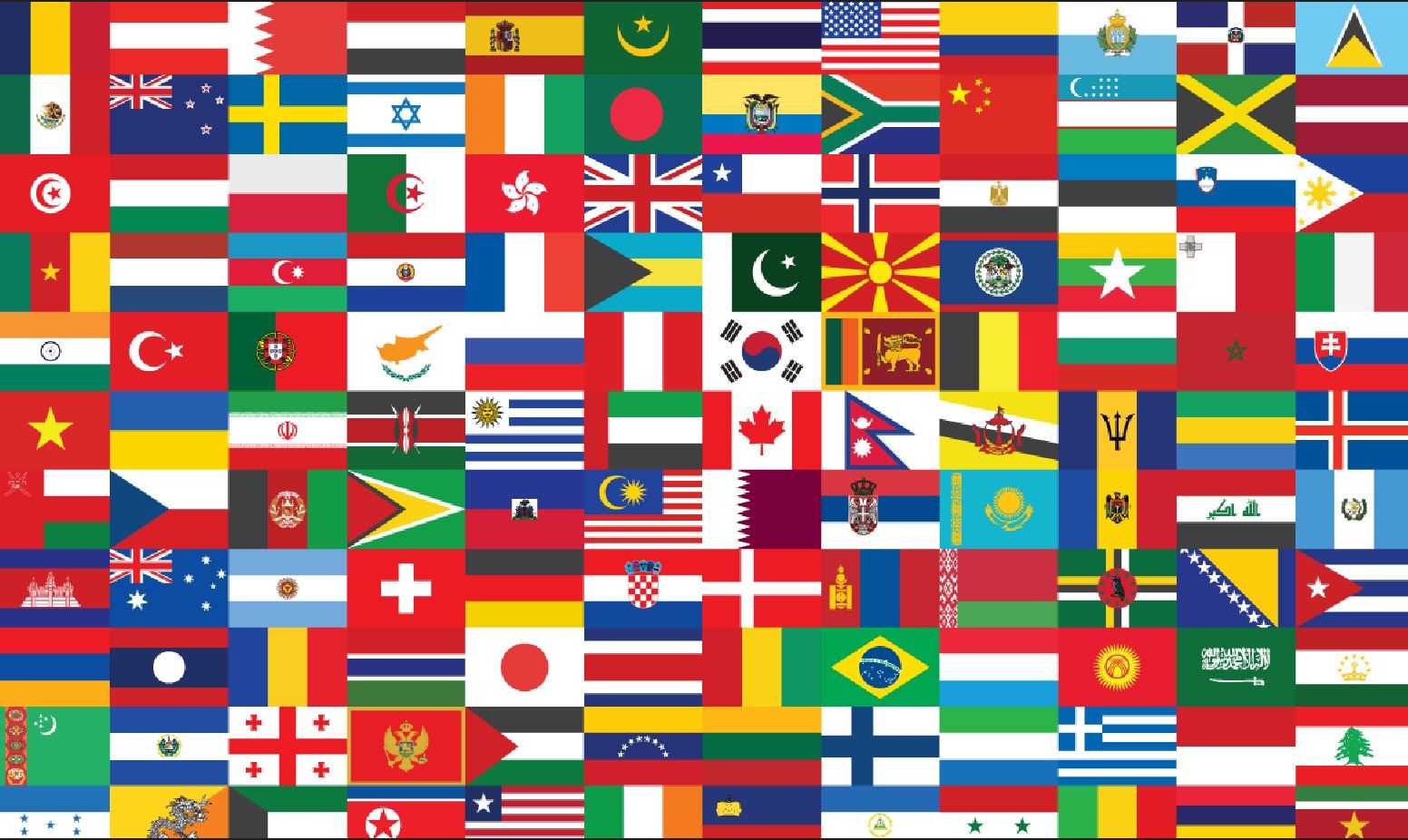What is nationality? Nationality is ascribed to individuals based on their connection with a particular nation, often established by birth within the country’s territory, descent from its citizens, or naturalization. It is a legal relationship between an individual and a state that bestows certain rights and obligations on both parties. Nationality typically entitles a person to the state’s protection, the right to vote or stand for public office, and the right to work and live in the country.
However, nationality extends beyond legal rights and responsibilities—it also often encompasses a shared cultural identity, including elements such as language, religion, traditions, and societal norms. It can significantly influence a person’s worldview, behaviors, and sense of belonging.
Nevertheless, nationality shouldn’t be confused with ethnicity or citizenship. While nationality can be a part of one’s ethnic identity, ethnicity primarily refers to a group sharing common cultural, linguistic, or ancestral traits. On the other hand, citizenship refers to the legal status of a person recognized under the custom or law of a sovereign state or local jurisdiction—though it often aligns with nationality, this is not always the case.
In our increasingly globalized world, the concept of nationality continues to evolve, highlighting the diverse and interconnected nature of modern societies.
Below, I’ve listed the nationality for several countries
- Afghanistan – Afghan
- Albania – Albanian
- Algeria – Algerian
- Andorra – Andorran
- Angola – Angolan
- Antigua and Barbuda – Antiguan, Barbudan
- Argentina – Argentine
- Armenia – Armenian
- Australia – Australian
- Austria – Austrian
- Azerbaijan – Azerbaijani
- Bahamas – Bahamian
- Bahrain – Bahraini
- Bangladesh – Bangladeshi
- Barbados – Barbadian
- Belarus – Belarusian
- Belgium – Belgian
- Belize – Belizean
- Benin – Beninese
- Bhutan – Bhutanese
- Bolivia – Bolivian
- Bosnia and Herzegovina – Bosnian, Herzegovinian
- Botswana – Motswana (pl. Batswana)
- Brazil – Brazilian
- Brunei – Bruneian
- Bulgaria – Bulgarian
- Burkina Faso – Burkinabe
- Burundi – Burundian
- Cabo Verde – Cape Verdean
- Cambodia – Cambodian
- Cameroon – Cameroonian
- Canada – Canadian
- Central African Republic – Central African
- Chad – Chadian
- Chile – Chilean
- China – Chinese
- Colombia – Colombian
- Comoros – Comorian
- Congo (Congo-Brazzaville) – Congolese
- Costa Rica – Costa Rican
- Croatia – Croatian
- Cuba – Cuban
- Cyprus – Cypriot
- Czechia (Czech Republic) – Czech
- Denmark – Danish
- Djibouti – Djiboutian
- Dominica – Dominican (Note: Different from Dominican Republic)
- Dominican Republic – Dominican
- East Timor (Timor-Leste) – East Timorese
- Ecuador – Ecuadorian
- Egypt – Egyptian
- El Salvador – Salvadoran
- Equatorial Guinea – Equatorial Guinean, Equatoguinean
- Eritrea – Eritrean
- Estonia – Estonian
- Eswatini (formerly Swaziland) – Swazi
- Ethiopia – Ethiopian
- Fiji – Fijian
- Finland – Finnish
- France – French
- Gabon – Gabonese
- Gambia – Gambian
- Georgia – Georgian
- Germany – German
- Ghana – Ghanaian
- Greece – Greek
- Grenada – Grenadian
- Guatemala – Guatemalan
- Guinea – Guinean
- Guinea-Bissau – Bissau-Guinean
- Guyana – Guyanese
- Haiti – Haitian
- Honduras – Honduran
- Hungary – Hungarian
- Iceland – Icelandic
- India – Indian
- Indonesia – Indonesian
- Iran – Iranian, Persian
- Iraq – Iraqi
- Ireland – Irish
- Israel – Israeli
- Italy – Italian
- Jamaica – Jamaican
- Japan – Japanese
- Jordan – Jordanian
- Kazakhstan – Kazakhstani
- Kenya – Kenyan
- Kiribati – I-Kiribati
- Korea (North Korea) – North Korean
- Korea (South Korea) – South Korean
- Kuwait – Kuwaiti
- Kyrgyzstan – Kyrgyz, Kyrgyzstani
- Laos – Lao, Laotian
- Latvia – Latvian
- Lebanon – Lebanese
- Lesotho – Mosotho (pl. Basotho)
- Liberia – Liberian
- Libya – Libyan
- Liechtenstein – Liechtensteiner
- Lithuania – Lithuanian
- Luxembourg – Luxembourger
- Madagascar – Malagasy
- Malawi – Malawian
- Malaysia – Malaysian
- Maldives – Maldivian
- Mali – Malian
- Malta – Maltese
- Marshall Islands – Marshallese
- Mauritania – Mauritanian
- Mauritius – Mauritian
- Mexico – Mexican
- Micronesia – Micronesian
- Moldova – Moldovan
- Monaco – Monacan, Monegasque
- Mongolia – Mongolian
- Montenegro – Montenegrin
- Morocco – Moroccan
- Mozambique – Mozambican
- Myanmar (formerly Burma) – Burmese
- Namibia – Namibian
- Nauru – Nauruan
- Nepal – Nepali
- Netherlands – Dutch
- New Zealand – New Zealander, Kiwi (informal)
- Nicaragua – Nicaraguan
- Niger – Nigerien
- Nigeria – Nigerian
- North Macedonia (formerly Macedonia) – Macedonian
- Norway – Norwegian
- Oman – Omani
- Pakistan – Pakistani
- Palau – Palauan
- Palestine – Palestinian
- Panama – Panamanian
- Papua New Guinea – Papua New Guinean, PNG
- Paraguay – Paraguayan
- Peru – Peruvian
- Philippines – Filipino (male or gender-neutral), Filipina (female)
- Poland – Polish
- Portugal – Portuguese
- Qatar – Qatari
- Romania – Romanian
- Russia – Russian
- Rwanda – Rwandan
- Saint Kitts and Nevis – Kittitian or Nevisian
- Saint Lucia – Saint Lucian
- Saint Vincent and the Grenadines – Vincentian, Vincy
- Samoa – Samoan
- San Marino – Sammarinese
- Sao Tome and Principe – Sao Tomean
- Saudi Arabia – Saudi, Saudi Arabian
- Senegal – Senegalese
- Serbia – Serbian
- Seychelles – Seychellois
- Sierra Leone – Sierra Leonean
- Singapore – Singaporean
- Slovakia – Slovak
- Slovenia – Slovene or Slovenian
- Solomon Islands – Solomon Islander
- Somalia – Somali
- South Africa – South African
- South Sudan – South Sudanese
- Spain – Spanish
- Sri Lanka – Sri Lankan
- Sudan – Sudanese
- Suriname – Surinamese
- Sweden – Swedish
- Switzerland – Swiss
- Syria – Syrian
- Tajikistan – Tajikistani
- Tanzania – Tanzanian
- Thailand – Thai
- Togo – Togolese
- Tonga – Tongan
- Trinidad and Tobago – Trinidadian, Tobagonian
- Tunisia – Tunisian
- Turkey – Turkish
- Turkmenistan – Turkmen
- Tuvalu – Tuvaluan
- Uganda – Ugandan
- Ukraine – Ukrainian
- United Arab Emirates (UAE) – Emirati
- United Kingdom (UK) – British
- United States of America (USA) – American
- Uruguay – Uruguayan
- Uzbekistan – Uzbekistani, Uzbek
- Vanuatu – Ni-Vanuatu
- Vatican City (Holy See) – none; as an independent city-state enclaved within Rome, Italy, it has no ordinary citizens, only officials of the church
- Venezuela – Venezuelan
- Vietnam – Vietnamese
- Yemen – Yemeni
- Zambia – Zambian
- Zimbabwe – Zimbabwean
How to become a nationality of a particular country
To become a national of a particular country, there are usually several general paths, although the specific requirements and processes can vary greatly from one country to another. Here are four common routes:
- Birthright Citizenship: Some countries, such as the United States and Canada, offer birthright citizenship. This means that any child born within the country’s territories automatically becomes a citizen, regardless of the parents’ citizenship.
- Descent or Jus Sanguinis: This is when nationality is given to a person because they have a parent (or sometimes a grandparent) who is a national of that country. This is common in most countries around the world.
- Naturalization: This is the process by which a foreign citizen becomes a citizen of another country after fulfilling certain requirements. These typically include residing in the country for a certain number of years, proving good character, demonstrating knowledge of the language and culture, and pledging allegiance to the new country.
- Marriage: Many countries offer a path to citizenship for people who marry a citizen of that country. The specifics of this process can vary widely, and it typically includes a waiting period of several years.
Remember that immigration laws and citizenship requirements can be complex and often change, so it’s crucial to consult with a legal professional or visit the official immigration website of the specific country to get the most accurate and up-to-date information.
Is it possible to change your nationality to another country’s nationality?
Yes, it is possible to change your nationality to another country’s nationality. This is typically done through a process called naturalization. However, the specific requirements and procedures can vary significantly depending on the country.
In general, to apply for citizenship through naturalization, you would need to:
- Reside in the country for a certain period: Most countries require that you live there for a certain number of years before you can apply for citizenship. The length of time varies by country.
- Demonstrate proficiency in the language: Many countries require you to show that you can speak, read, and write in the country’s official language(s).
- Pass a citizenship test: This usually involves demonstrating knowledge of the country’s history, culture, legal system, and other key aspects of life in the country.
- Show good character: You may need to provide criminal background checks, character references, or other evidence to show that you are of good character.
- Take an oath of allegiance: If your application is successful, you’ll usually need to take an oath of allegiance to your new country.
However, there are some key things to be aware of:
Not all countries allow dual citizenship. This means you may have to renounce your previous citizenship in order to become a citizen of another country.
The process can be expensive and time-consuming. It can take several years and involve a significant amount of paperwork.
Citizenship laws can change, so it’s important to seek legal advice and check the current laws of the country you wish to become a citizen of.
Finally, it’s worth noting that gaining citizenship in a new country is a serious decision that can have significant legal and personal implications. It’s not a process to be undertaken lightly, and it’s always recommended to consult with a legal professional to fully understand the implications.
Once you have acquired the nationality of a country, can it be terminated?
Yes, nationality can potentially be terminated or lost in certain circumstances, often referred to as loss of nationality or denaturalization. The specifics can vary depending on the country, but generally, there are several common ways this can occur:
- Voluntary renunciation: This is when a person intentionally gives up their nationality. This process often involves formal paperwork and possibly a fee. For example, in the United States, a person can voluntarily renounce their citizenship at a U.S. embassy or consulate in a foreign country.
- Naturalization in a foreign state: In some countries, voluntarily acquiring citizenship in another country can lead to the loss of the original citizenship, particularly in countries that do not allow dual citizenship.
- Fraud or misrepresentation in the naturalization process: If a person lied or omitted crucial information during the naturalization process, and this is later discovered, their citizenship can be revoked, often through a legal process.
- Service in foreign military or government: In some cases, serving in a foreign military or government can lead to loss of citizenship, especially if that service is associated with a country that the home country considers hostile.
- Criminal acts: Some very serious criminal acts, such as treason, might lead to loss of citizenship in certain jurisdictions.
The exact conditions under which nationality can be lost vary by country, so for the most accurate information, it’s necessary to consult the nationality laws of the specific country or seek advice from a legal expert in immigration law.
Please note that international law generally seeks to prevent statelessness, so the loss of nationality that leaves a person without citizenship of any country is a complex area with many legal restrictions and is not typically done without the person acquiring another nationality.
Synonyms of nationality
Here are some synonyms for the term “nationality”:
- Citizenship
- Country of Origin
- Homeland
- Native Land
- Birthplace
- Motherland
- Fatherland
- Home Country
- National Identity
- Nation
Please note, while these terms are similar, their use may differ depending on context. For example, ‘citizenship’ often refers specifically to the legal status of a person in relation to a country, while ‘nationality’ might be used more broadly to describe a person’s cultural or ethnic identity as well.
20 common sentences of nationality
- My nationality is Canadian, but I currently live in the United States.
- The company hires employees regardless of nationality.
- I’m proud of my Indian nationality.
- She holds dual nationality, both Italian and American.
- The diversity of nationalities in our school provides a rich cultural experience.
- He decided to change his nationality after living in France for many years.
- The census collects data on the different nationalities residing in the country.
- Despite our different nationalities, we share many common values.
- Nationality is just one aspect of a person’s identity.
- Her nationality is Greek, but she was born and raised in Australia.
- The team consists of players of various nationalities.
- It’s fascinating to learn about different nationalities and their cultures.
- I have two nationalities because my parents come from different countries.
- Sometimes nationality can influence our perspective on global events.
- His nationality is Russian, but he writes his novels in English.
- The film festival features directors of many different nationalities.
- She used her Italian nationality to apply for a job in Rome.
- Nationality does not define a person’s abilities or character.
- Your nationality can offer you certain rights and responsibilities in your country.
- He is applying for a change in nationality after marrying his German wife.
Source: Scopenew.com – Guide



